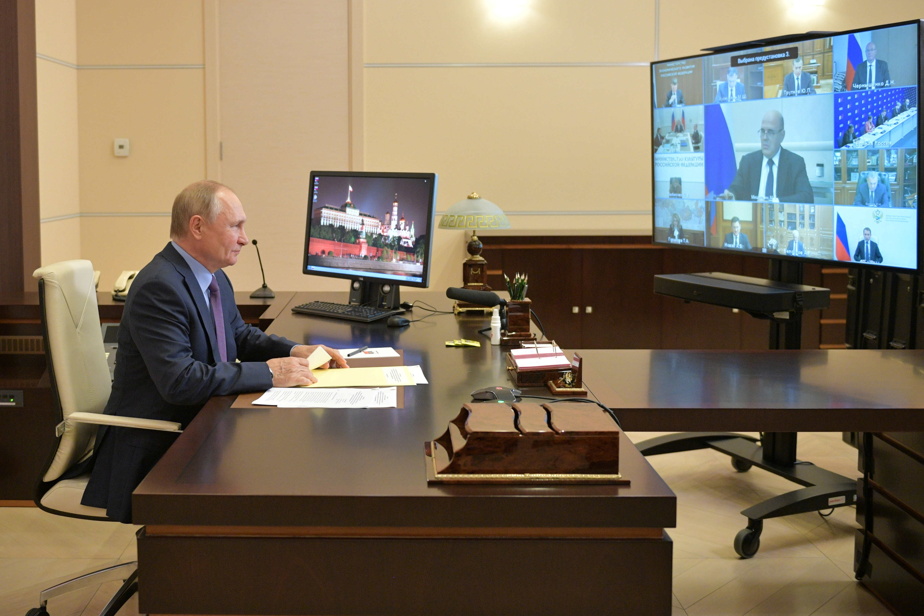(Moscow) The Russians began voting in the parliamentary elections, Friday, with the opening of the first polling stations in the Far East, and most of the Kremlin’s critics were excluded from it.
“Let’s go!”, the head of the Central Election Commission, Ella Pamfilova, during a meeting of this body launched a live broadcast on her website.
Russia is being extended to eleven time zones, and these elections, which will take place from September 17 to 19, in order to reduce the risk of the epidemic, were launched in the Kamchatka and Chukotka regions, in the far east, at 8 am local time. (4 p.m. EDT Thursday).
Inga Irenena, head of the local election commission in Petropavlovsk-Kamchatsky, the capital of the Kamchatka Peninsula, confirmed during a video meeting with the Central Electoral Commission.
Polling stations in Moscow will not open until 4 a.m. (Quebec time).
A few hours before the polls began, President Vladimir Putin called on Russians to show “responsibility, balance and patriotism,” in a video posted on the Kremlin’s website overnight from Wednesday to Thursday.
He made the appeal while in isolation due to the dozens of COVID-19 cases identified in his entourage, illustrating the difficulties Moscow is facing in stemming the pandemic against the backdrop of a slow vaccination campaign.
His spokesman, Dmitry Peskov, suggested that Putin would likely use the online voting system instead of going to the polls, due to the quarantine.
The three-day Russian electoral marathon includes legislative elections, as well as dozens of regional and local elections.
The first results are expected after 2pm EST on Sunday.
Opposition ruled out
Almost all opposition was excluded from the ballot, the culmination of months of repression that began with the arrest of the prominent figure, Alexei Navalny, when he returned to Russia in January after a suspected poisoning of the Kremlin.
His movement has since been completely banned for “extremism” and many of his prominent allies have been forced into exile, placed under house arrest or barred from running.
Russia’s powerful investigative committee said Thursday that it has opened an investigation against 11 people, who will be sentenced to prison, accused of invoking the encrypted Telegram messaging system for “mass disturbances” during the elections.
108 million Russians were invited to the polls to elect 450 deputies to the State Duma. Half are appointed through the proportional list system, and the other half are appointed first after position.
From his imprisonment Mr Navalny has called on his supporters to vote “smart”, supporting candidates – often communists – who are in a better position to confront the difficulty of the ruling party, United Russia.
Unpopular, against the background of corruption scandals and deteriorating living standards, United Russia has less than 30% of favorable opinions according to opinion polls.
However, training should prevail, since there is no real competition, the other parties represented in the Duma – communists, nationalists, centrists – are generally aligned with the Kremlin.
Mr. Putin, in power for more than twenty years, has also campaigned for him to be trained in his own way, notably by announcing extraordinary financial assistance to 42 million pensioners, a key electorate.
The Russian authorities have also intensified their efforts to reduce the impact of “smart voting”, which is described as “extreme” and which illustrates Western interference in the elections.
Moscow in particular criticizes internet giants for refusing to remove content deemed illegal. Last week, Russian diplomats expressed their anger to the US ambassador over the issue.
Twitter, Facebook and Telegram have been condemned on several occasions in recent months for refusing to delete posts.

“Extreme twitteraholic. Passionate travel nerd. Hardcore zombie trailblazer. Web fanatic. Evil bacon geek.”

